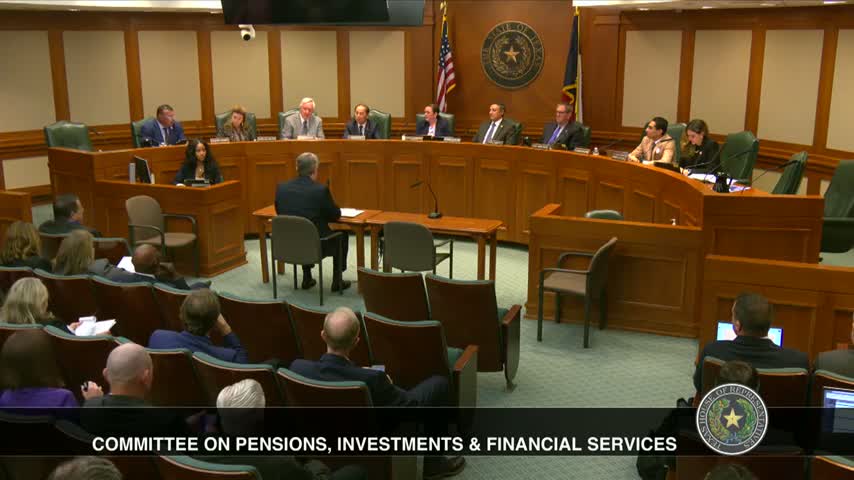Activists clash over ESG policies and shareholder influence
September 19, 2024 | Committee on Pensions, Investments & Financial Services, HOUSE OF REPRESENTATIVES, Legislative, Texas
This article was created by AI summarizing key points discussed. AI makes mistakes, so for full details and context, please refer to the video of the full meeting. Please report any errors so we can fix them. Report an error »

In a recent government meeting, concerns were raised about the influence of shareholder activists on Environmental, Social, and Governance (ESG) policies, particularly regarding the role of major proxy advisory firms. The discussion highlighted that two companies dominate 97% of the market, directing asset managers on how to vote based on policy rather than company value. This has led to calls for legislators to take charge of policy-making instead of allowing activists to dictate terms.
One key point of contention was the voting guidelines set by Institutional Shareholder Services (ISS), which recommends voting against directors of companies that fail to adopt greenhouse gas emissions reduction targets aimed at achieving net-zero emissions by 2050. Critics argue that these targets may be unrealistic and that such recommendations could hinder effective corporate governance.
The meeting also touched on the ease with which shareholders can influence corporate agendas. It was noted that individuals or nonprofit groups can acquire a minimal amount of stock—sometimes as little as $25,000—and hold it for a year to propose shareholder resolutions. This practice has raised concerns about the potential for agendas to be pushed that cannot be achieved through legislative means.
Participants discussed the need for clearer regulations regarding the funding of these activist groups, particularly those that may receive foreign support. The testimony pointed out that organizations like \"As You Sow,\" which is active in proposing ESG-related shareholder resolutions, are funded by foreign entities, raising questions about the implications of such financial backing on domestic corporate governance.
Overall, the meeting underscored the ongoing debate over the intersection of finance, policy, and corporate responsibility, with a call for more robust legislative frameworks to guide investment decisions based on returns rather than activist-driven policies.
One key point of contention was the voting guidelines set by Institutional Shareholder Services (ISS), which recommends voting against directors of companies that fail to adopt greenhouse gas emissions reduction targets aimed at achieving net-zero emissions by 2050. Critics argue that these targets may be unrealistic and that such recommendations could hinder effective corporate governance.
The meeting also touched on the ease with which shareholders can influence corporate agendas. It was noted that individuals or nonprofit groups can acquire a minimal amount of stock—sometimes as little as $25,000—and hold it for a year to propose shareholder resolutions. This practice has raised concerns about the potential for agendas to be pushed that cannot be achieved through legislative means.
Participants discussed the need for clearer regulations regarding the funding of these activist groups, particularly those that may receive foreign support. The testimony pointed out that organizations like \"As You Sow,\" which is active in proposing ESG-related shareholder resolutions, are funded by foreign entities, raising questions about the implications of such financial backing on domestic corporate governance.
Overall, the meeting underscored the ongoing debate over the intersection of finance, policy, and corporate responsibility, with a call for more robust legislative frameworks to guide investment decisions based on returns rather than activist-driven policies.
View full meeting
This article is based on a recent meeting—watch the full video and explore the complete transcript for deeper insights into the discussion.
View full meeting
